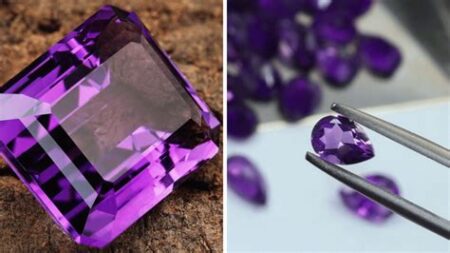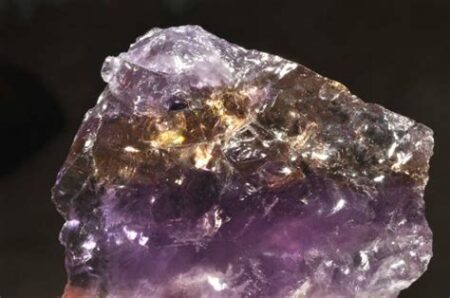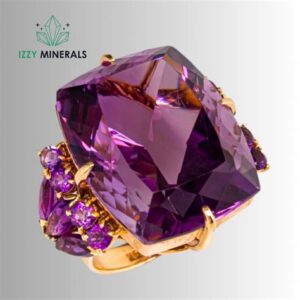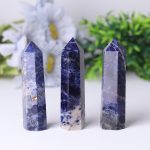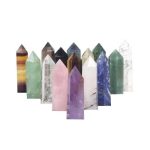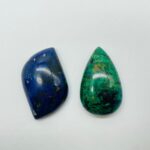Introduction

Black stones, renowned for their distinctive appearance and versatility, have been utilized throughout history for various purposes. From construction to jewelry making and spiritual ceremonies, these enigmatic materials continue to captivate our imagination. This article presents a comprehensive exploration of the different types of black stones, their unique characteristics, and their myriad applications.
1. Black Obsidian
Properties:
– Vitreous, glassy surface
– Volcanic origin, formed from rapidly cooled lava
– Hardness: 5-5.5 on the Mohs scale
– Color: Jet black, sometimes with iridescent sheen
Applications:
– Jewelry making (pendants, beads)
– Surgical scalpels (due to its sharp edge)
– Arrowheads and other tools in ancient civilizations
– Metaphysical and spiritual practices
2. Black Star Obsidian
Properties:
– Similar to black obsidian, but with tiny, star-like inclusions
– Hardness: 5-5.5 on the Mohs scale
– Color: Black with silvery or golden star-shaped patterns
Applications:
– Jewelry (cabbed or polished)
– Decorative objects (paperweights, spheres)
– Used in crystal healing for its believed ability to ground and protect
3. Black Onyx
Properties:
– Crystalline quartz infused with carbon
– Hardness: 7 on the Mohs scale
– Color: Deep black, opaque
Applications:
– Jewelry (rings, earrings, bracelets)
– Intaglio and cameo carving
– Used in ancient Egypt for protective amulets
4. Black Tourmaline
Properties:
– Crystalline mineral containing boron, aluminum, silicon, and oxygen
– Hardness: 7-7.5 on the Mohs scale
– Color: Black, sometimes with radiating striations
Applications:
– Jewelry (pendants, earrings)
– EMF protection (believed to absorb or neutralize electromagnetic radiation)
– Metaphysical and spiritual practices (grounding, protection)
5. Black Spinel
Properties:
– Gemstone belonging to the spinel group
– Hardness: 8 on the Mohs scale
– Color: Black, sometimes with brown or green undertones
Applications:
– Jewelry (rings, pendants)
– Gemstone in horological applications
– Industrial abrasive due to its hardness
6. Black Coral
Properties:
– Marine invertebrate composed of calcium carbonate and protein
– Hardness: 3-4 on the Mohs scale
– Color: Black, sometimes with reddish or brownish hues
Applications:
– Jewelry (necklaces, bracelets)
– Decorative objects (carvings, sculptures)
– Used in traditional medicine for its believed healing properties
7. Black Jade
Properties:
– Jadeite gemstone containing chromium impurities
– Hardness: 7 on the Mohs scale
– Color: Deep black, sometimes with greenish undertones
Applications:
– Jewelry (rings, beads)
– Carvings and sculptures
– Used in Chinese culture as a symbol of protection and good luck
8. Black Star Sapphire
Properties:
– Gemstone variety of corundum containing star-like inclusions of rutile
– Hardness: 9 on the Mohs scale
– Color: Black with shimmering star-shaped patterns
Applications:
– Jewelry (cabochons, pendants)
– Decorative objects (paperweights, spheres)
– Used in metaphysical and spiritual practices for its believed ability to enhance clarity and focus
9. Black Diamonds
Properties:
– Carbon allotrope, the hardest known natural material
– Hardness: 10 on the Mohs scale
– Color: Black, sometimes with metallic sheen
Applications:
– Jewelry (rings, earrings)
– Industrial applications (cutting tools, abrasives)
– Scientific research (due to their extreme hardness and thermal conductivity)
10. Black Pearl
Properties:
– Organic gemstone produced by oysters and other mollusks
– Hardness: 4-5 on the Mohs scale
– Color: Black, with iridescent overtones
Applications:
– Jewelry (necklaces, earrings, bracelets)
– Decorative objects (inlays, sculptures)
– Used in traditional medicine for its believed healing properties
Why Black Stones Matter
Black stones have gained significant cultural, historical, and spiritual significance throughout the world. Their deep and enigmatic appearance has inspired myths, legends, and beliefs in various societies. Black stones have been associated with:
- Protection and grounding: Obsidian, tourmaline, and onyx are believed to protect against negative energies and provide a sense of stability.
- Spiritual connection: Black stones are often used in meditation and spiritual practices to enhance focus, clarity, and connection to the divine.
- Healing and well-being: Black coral and black pearl are believed to possess therapeutic properties and are used in traditional medicine for various ailments.
- Luxury and elegance: Black diamonds and black spinel are highly valued gemstones known for their sophistication and elegance.
- Durability and functionality: Black stones like obsidian and black jade are renowned for their hardness and durability, making them suitable for industrial applications and practical uses.
Applications Beyond the Obvious
The versatility of black stones extends beyond their traditional uses. With the advent of advanced technologies and creative thinking, new and innovative applications are emerging. Here are a few examples:
- Nanotechnology: Black stone nanoparticles are being investigated for their potential in electronics, optics, and medical imaging.
- Energy storage: Black stones with high thermal conductivity are being explored for use in energy storage systems.
- Biomaterials: Black stones with biocompatible properties are being developed for use in medical implants and surgical instruments.
- Decorative applications: Black stones are being incorporated into innovative architectural designs, interior décor, and fashion accessories.
Tips and Tricks
- Care and cleaning: Black stones are generally durable, but they can be scratched or chipped if not handled properly. Clean with a soft brush and mild soap, and avoid harsh chemicals.
- Storage: Store black stones separately to prevent damage from scratching or abrasion.
- Feng Shui: In Feng Shui, black stones are associated with the element of water and the north direction. They are believed to bring balance and harmony to a space.
- Metaphysical uses: Black stones are believed to have grounding, protective, and purifying properties. Use them in meditation, crystal healing, or spiritual practices to enhance your well-being.
- Jewelry design: Black stones add a touch of elegance and mystery to jewelry designs. Combine them with contrasting colors or metals for a stunning effect.
FAQs
-
What is the hardest black stone?
Black diamond, with a hardness of 10 on the Mohs scale. -
Which black stone is associated with protection?
Obsidian, tourmaline, and onyx are believed to offer protection against negative energies. -
What is the difference between black onyx and black obsidian?
Onyx is crystalline quartz, while obsidian is volcanic glass. Onyx is harder (7 on the Mohs scale) than obsidian (5-5.5). -
Which black stone is known for its star-shaped patterns?
Black star obsidian and black star sapphire both exhibit star-like patterns, created by inclusions of other minerals. -
What is the most expensive black stone?
Black diamonds are the most valuable black gemstone, known for their extreme hardness and rarity. -
Can black stones be used in jewelry?
Yes, black stones are commonly used in jewelry making, from earrings and necklaces to rings and bracelets. -
Are black stones good for emotional healing?
Black stones are believed to have grounding and protective properties, which can be beneficial for emotional healing and well-being. -
What is the origin of the name “black obsidian”?
Obsidian is named after Obsius, a Roman soldier who is said to have discovered the stone in Ethiopia.

